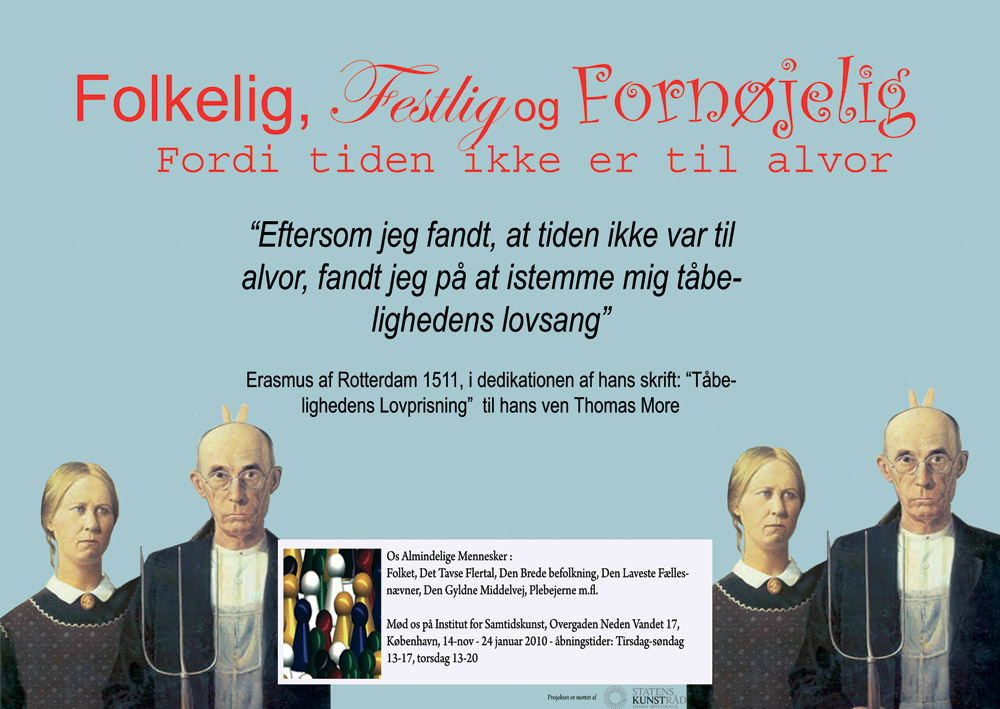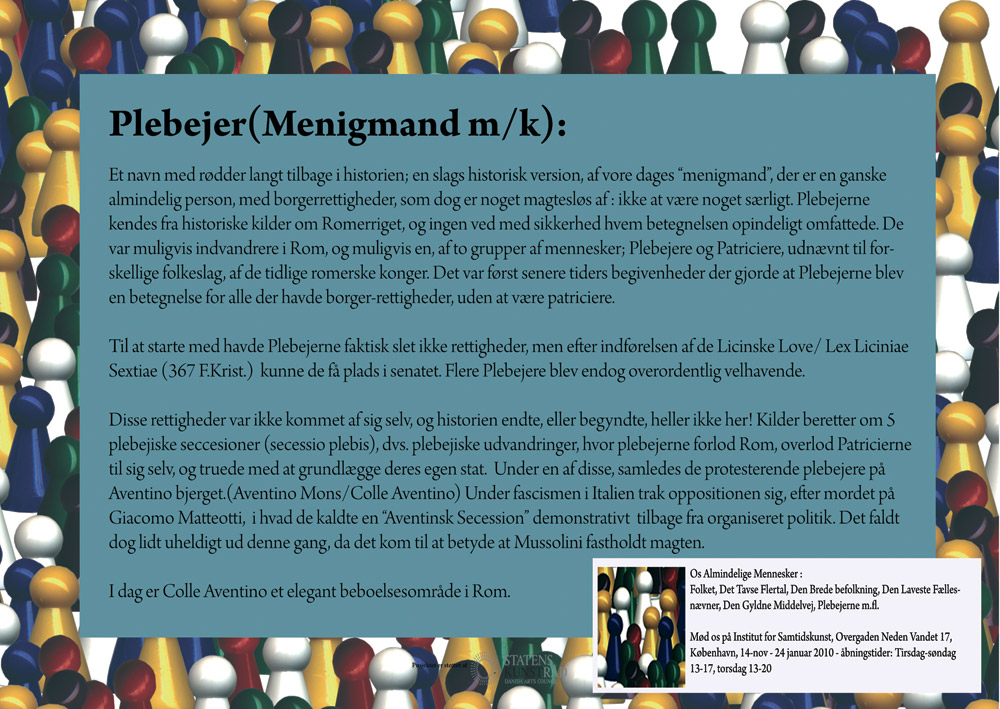From 2006 to 2010, “Committee of Common Men and Women” made a series of posters. These posters advertises some of the subcommittees of the alleged organization, and presented the views of some exemplary normal people on some exemplary normal topics, in so-called Vox Pops. In time, these posters may all be translated into english, but so far, I will write small excerpts here, under each image.
Translation: Folksy, festive and fun: (above)
“Since I felt that I absolutely had to do something, and times were hardly suitable for any serious practise, I decided to amuse myself with the praise of Folly” ( Erasmus of Rotterdam/1511/ in the dedication of his book “The Praise of Folly”, to his friend Thomas More.
Translation excerpt: The Silent Majority (above)
There are numerous occasions in this world that seem to make us want to keep quiet. On some quiet occasions one probably should say something, and on others there really isnt anymore that one can say. One could also make some unpleasant idea go unmentioned in order to make it go away – which can be seen as a rather militant, or activist kind of keeping still.
(text below image: Silence against terror/ Spain 2003)
Excerpt: Plebeian (common man/woman) (above)
A word with an ancient history; and a kind of historical version of the contemporary so-called “nobody”, that, in spite of having the rights of a citizen, nevertheless feels powerless exactly because of his or her unheeded appearance.
The Plebeians are mentioned in historical sources from the Roman Empire, and no-one knows for certain who the originals Plebeians really were. They were possibly immigrants t
Rome, or possibly just one of two groups of people, the Plebeians and Patricians, that had been classed as different peoples by the early Roman kings.
It was only later events that caused “Plebeian” to be the term to describe someone who had rights without being patrician. To begin with the Plebeians didn’t have any rights, but after the institution of the “Lex Liciniae Sextiae” (347 BC), they were able to get a seat in the senate. Some Plebeians even became very rich.”(…)
Translation of the above poster:
The Golden Mean – If you are serious about the middle
Th Golden Mean is a well-established and well documented philosophy of the middleground, and most people will, at some stage have considered to follow some of it’s “in betweens”.
Renowned old sages such as Konfucius, Buddha, Pythagoras, Sokrates and Thomas of Aquinas have also taken their turn in this centre of all viewpoints.
The term itself is probably derived from a verse by Horace where he uses the words “Aurea Mediocritas”. If you are at all serious about the middleground, the Golden Mean is probably a god place to begin your search for the absolute center of all things.
TO BE UPDATED WITH MORE POSTERS AS SOON AS I TRANSLATE THEM..




